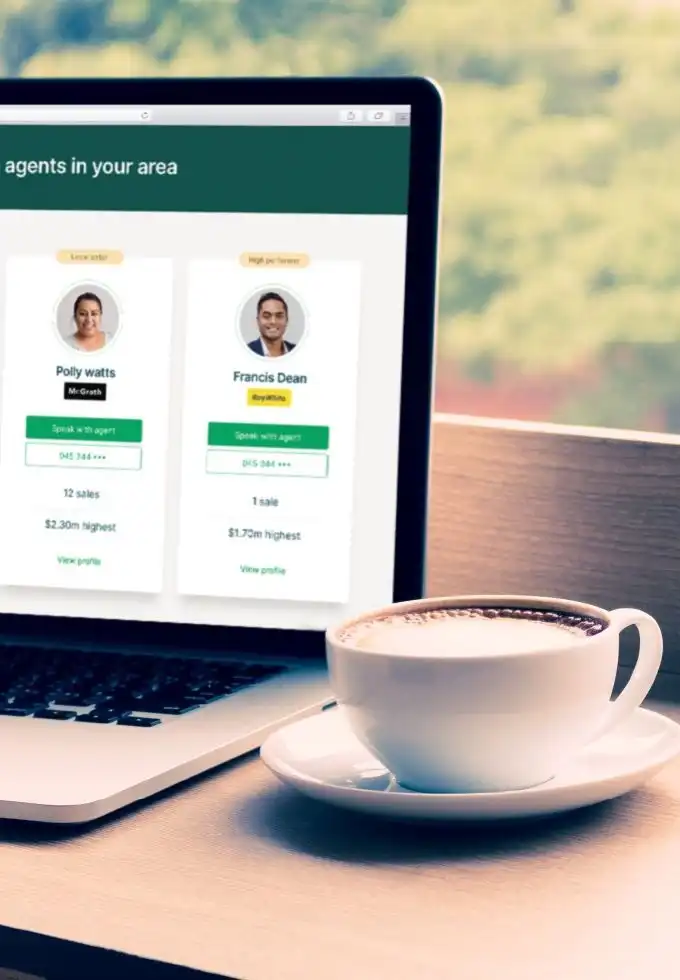How to sell my house privately
Selling a house privately—what does it mean?
Selling a house privately, also called “sale by owner,” means selling your home without using a real estate agent.
While you may save on commission, selling without an agent can be risky and you need to thoroughly research your legal obligations before listing. Other considerations include current market climate and the time involved. Despite your best efforts, a good agent is more likely to achieve greater exposure for your property and a higher sale price in less time, particularly in a challenging market.
Selling privately doesn’t have to mean going it alone, however. For a flat fee, there are companies who can help by providing marketing tools, property reports and website listings, but most of the leg work will be down to you.
How to sell your house without an agent - what are the key steps?
Selling your house privately is a similar process to selling with an agent except you're in control. In practice, this means:
Preparing your home for sale
To make the best first impression, you should:
- Clean including floors, windows and light fittings.
- Declutter to make spaces feel bigger and airier.
- Repair minor faults that buyers could picture costing money like leaking taps or expired light bulbs.
- Landscape such as weeding, pruning and mowing.
- Refresh your home with professional carpet cleaning or updated fittings and fixtures.
Usually, an agent advises what needs to be done to get your house ready for sale. If you’re selling without an agent, it’s your job to identify issues that could turn off buyers and fix them before any photos or inspections.
Researching the local property market
Every suburb is subject to its own market trends including median sale prices, clearance rates, supply/demand and seasonal trends. These can impact how fast your house sells and for how much. Without an agent’s analysis, you’ll need to get your head around the trends in your suburb to make informed decisions
Setting the right price for your home to get maximum buyer interest without underquoting
Agents use local knowledge and experience to advise realistic asking prices for their clients. Sellers, guided by emotion, can risk overpricing. When selling your own home, it’s vital to research comparable properties and price competitively. Factors to consider include number of rooms, location, age of the house, land size and view.
Arranging property photography for your listing
Don’t be tempted to save money by taking your own photos – it could cost in the long run. Real estate photographer are pros at capturing homes at their best.
Listing your home on a property portal
Listing your property online can be tricky without an agent. Most major real estate websites don’t allow listings from members of the public while others require a fee. There are companies you can hire to get your property listed on these sites on your behalf.
Advertising and marketing for your home
One benefit of selling through an agent is that someone else manages your advertising strategy. To sell your house privately, you’ll need a ‘For Sale’ sign to put out front as well as open home flags and a flyer or brochure to hand out at inspections, at a minimum.
Arranging inspections and open homes
Without an agent, you’ll be fielding calls and emails from interested buyers and organising inspections. This needs to be treated professionally by responding quickly, putting aside time for inspections and following up with potential buyers.
Negotiating with buyers and potentially dealing with low-ball offers
Negotiating offers is one of the most stressful aspects of selling your own home. Without the confidence or expert sales skills of an agent, a simple approach is to decide how much you are willing to accept and stick to it.
Engaging a solicitor / conveyancer
Once you’ve accepted an offer, you’ll need a solicitor or conveyancer to finalise the contract. This is the same whether you sell your house privately or use an agent.

Legal requirements for selling your home privately
Legal requirements differ from state to state when selling without an agent, however it’s generally recommended you organise a contract of sale before listing your property. For those selling a house privately in NSW or ACT, this is a legal obligation.
The main legal requirements that apply nationwide cover contract preparation, vendor statements and laws on underquoting. Underquoting can be listing below estimated selling price or at a price you’ve already rejected. It’s important to know the legal obligations and pricing laws in your state – in Victoria, for instance, you can’t use phrases like “From” or “Offers Above” with your sale price.
You’ll also need a solicitor or conveyancer to arrange the contract, transfer of title, discharge any mortgage and to hold the deposit the buyer will pay when the contracts are signed. It’s illegal for sellers to hold a deposit in their own bank account. Your solicitor will transfer the deposit to you at settlement.
Failure to meet legal requirements when selling privately can incur penalties so it’s vital you do your homework.
Selling a house privately VS with an agent - which is better?
Some pros of selling your house privately are:
- Saving on agent’s commission – this could equate to tens of thousands of dollars.
- Complete control of how your home is presented and marketed.
- Greater flexibility for you and potential buyers. A private sale is less time sensitive than an auction, for example.
- A private sale may be more appealing to some buyers.
On the other hand, some cons include:
- Managing queries, inspections and open houses can be stressful and time consuming.
- You’ll need to be on top of all the costs of selling that an agent would usually outline.
- Paying for your own advertising materials is expensive. Agents can arrange these at a more cost-effective rate.
- You miss out on the database of potential buyers an agent brings.
- Buyers may try to leverage your perceived inexperience by pushing for a lower price. Real estate agents are expert negotiators and could secure a higher price than you could negotiate alone.
- You risk settling for less than your home is worth if you don’t fully understand the market.
Ultimately, whether it’s better to sell your house privately or with an agent comes down to your situation, but it’s worth keeping in mind agents who work on commission are motivated to sell your home for the best price possible.
Can I sell my house without an agent?
Yes, you can legally sell your house privately in Australia.
How much can I save selling my property privately?
The significant saving is on agent’s commission which can range from 1.3 to 4 per cent, depending on where you live. As example, a commission rate of 2 per cent on a $1M property is $20,000.
What do I need to do before I sell my house privately?
Before selling privately you’ll need to research the market, prepare your property and engage a solicitor or conveyancer to manage the contract for sale.
Can I keep my house sale price private?
You can choose not to disclose your sale price but as private land ownership in Australia is registered, your sale must be recorded with your relevant land registry service where it will enter a searchable database.
What documents do i need to sell my house without an agent?
Selling your house privately in Australia requires several key legal documents, which can vary by state or territory. Generally, you’ll need:
- Contract of Sale: Outlines the terms and conditions of the sale.
- Vendor Disclosure Statement (e.g., Section 32 in Victoria, Form 1 in South Australia): Provides essential information about the property.
- Title and property certificates: Confirm ownership and any encumbrances.
- Zoning and planning certificates: Detail land use and any restrictions.
- Strata documents (if applicable): Include by-laws and financial statements for strata-titled properties.
It’s highly recommended to engage a licensed conveyancer or solicitor to prepare these documents and guide you through the legal requirements, as they can vary across different jurisdictions.








